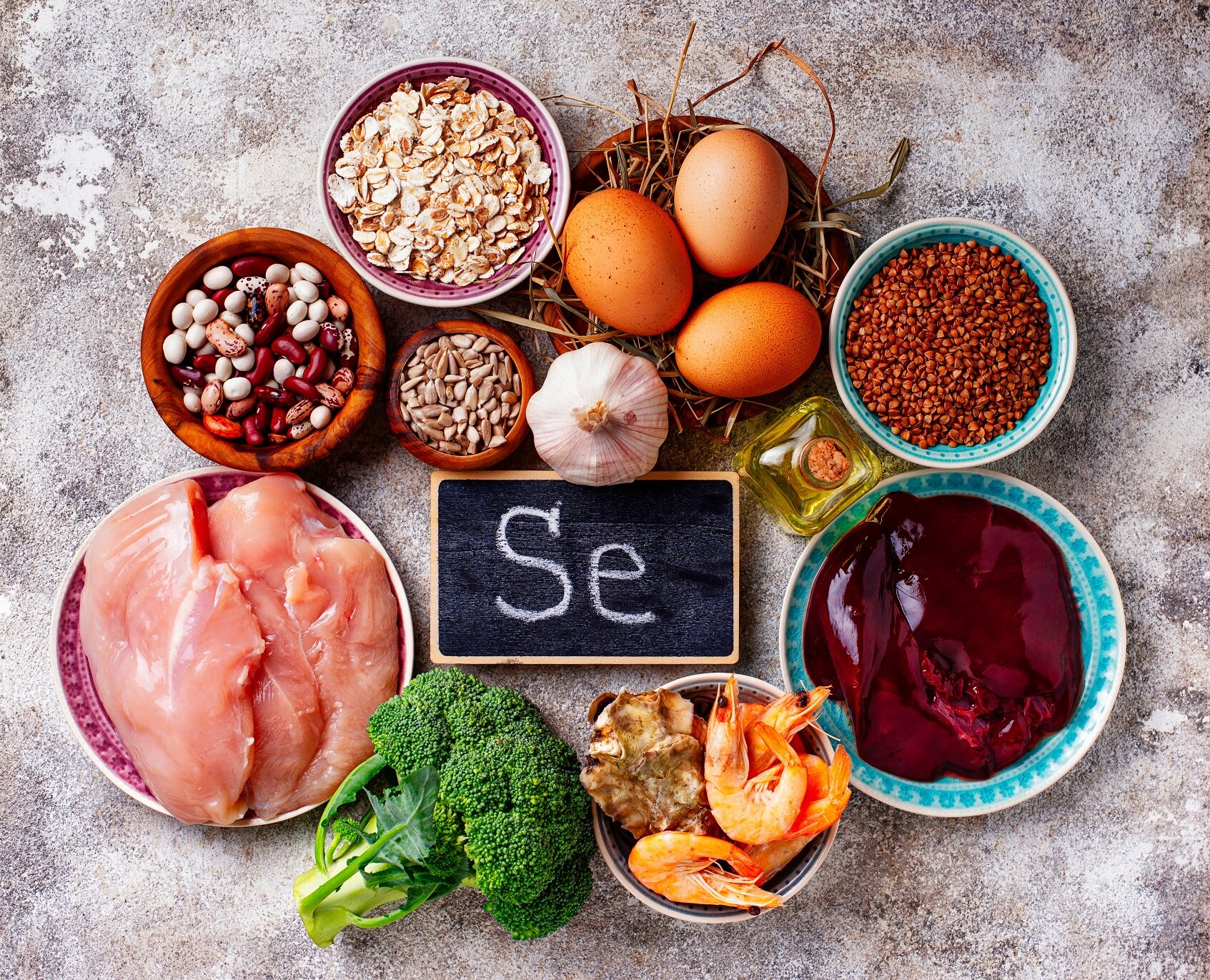In Western Europe, selenium deficiencies have been diagnosed in the elderly, obese, and those with weakened immune systems. Researchers want to know whether these deficiencies influence the course of COVID-19. Selenium might help in treating the disease in the future.
Comments and suggestions are welcome! Don't hesitate and leave them on our comment section down below the article
Selenium naturally occurs in certain foods - Image Credit: Yulia Furman via Shutterstock - HDR tune by Universal-Sci
A group of researchers from Ghent University and two local hospitals has started researching whether selenium levels in the blood can help predict the course of the coronavirus disease. The researchers will measure the selenium levels in the blood of COVID-19 patients. A large part of the population of the Flemish region of Belgium has a selenium deficiency.
Selenium is a trace element that is part of a series of enzymes that are involved in the functioning of our immune system, among other things. It protects red blood cells and regular cells from damage. Additionally, selenium mitigates the toxicity of heavy metals that can sometimes end up in food. It is also essential for the proper functioning of the thyroid gland. The group of enzymes, of which selenium is a part, absorb chemicals that cause damage to tissues and the genetic material, for example, in inflammation after viral infections.
Selenium can be found in many foods, both animal (fish and meat) and vegetable products. Many people absorb too little selenium through food; as a consequence, selenium levels in our blood are often lower than recommended. Since previous studies revealed a link between selenium deficiency and inflammation after viral infections, the Belgian research team now wants to define the possible role of selenium levels regarding the course of the COVID-19 in patients.
Image Credit: Andrii Vodolazhskyi via Shutterstock - HDR tune by Universal-Sci
The link between selenium deficiency and inflammation after virus infections
The connection between selenium and viral infections has already been established with several other viruses. For example, the course of the Ebola disease in Africa has been linked to selenium deficiencies. Additionally, in China, selenium deficiencies have also been linked to inflammation of the heart muscle after infection with a specific virus.
Selenium might play a role in the treatment of COVID-19. Recent research from China determined that ebselen, a particular component containing selenium, showed the best antiviral activity against COVID-19 in lab cultures.
The relation between severely affected COVID-19 patients and selenium deficiency
In Belgium, it has already been established that selenium levels and selenium intake via food are lower than recommended in a significant part of the population. Studies conducted in Sweden, Italy, and Spain have shown that a large part of their populations also has selenium deficiencies in their blood.
Selenium levels in the blood of the most severely affected COVID-19 patients, including the elderly, obese people, and a weakened immune system, have not yet been investigated. However, in Finland, where selenium has been added to fertilizers since the 1980s, in order to increase selenium intake to optimal levels, COVID-19 appears to be less destructive.
Of course, further research has to be done as other factors may also play a role. The research team, coordinated by Ghen university, hopes to clarify the possible role of adequate selenium status in the near future.
Be careful with selenium supplements - Image Credit: Toasted Pictures via Shutterstock - HDR tune by Universal-Sci
Selenium supplements
A healthy and varied diet helps prevent a selenium deficiency. Especially fish and certain types of nuts contain a lot of it. Meat, whole grain cereals, and dairy products also make an important contribution to selenium intake.
When it comes to vegetable products, the amount of selenium depends mainly on the selenium content in the soil on which these vegetable crops are grown.
It is very important to mention, however, that too high a selenium intake when taking dietary supplements can be harmful. It is essential to know the selenium level in your blood before taking any supplements!
Taking this into account, the researchers also want to contribute to the further development of a home test that can measure selenium levels directly with one drop of blood from the finger.
Sources and further reading: Ghent University press release / The Netherlands Nutrition Centre
Featured Articles:
If you enjoy our selection of content please consider following Universal-Sci on social media



















